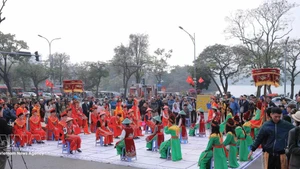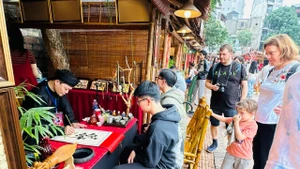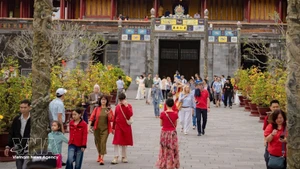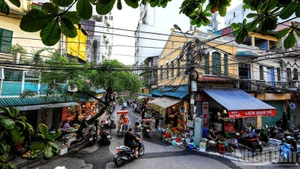However, to achieve effective digital transformation, Vietnam’s smokeless industry needs to overcome several barriers to create a synchronous ecosystem while making careful calculations in resource investment and infrastructure renovation.
Amidst the development of online travel and the tendency of using touchless solutions, especially during the post-pandemic period, digital transformation has been becoming a vital choice for travel organisations and businesses to survive and develop during the 4.0 revolution. The awareness of digital transformation has seen clear changes. Not only big businesses but also medium and small enterprises have also carried out digital transformation in many forms to enhance their competitiveness.
Synchronisation in systems
According to experts, the digital transformation of tourism in Vietnam has still been taking place asynchronously. Sharing at the forum themed “Green channel for tourism to take off” held by the Business Forum Magazine, Nguyen Quyet Tam, Director of VietISO Company, said most localities and businesses are trying to carry out digital transformation in tourism; however, each of them has its view and method due to no standard system. Therefore, the databases have not been shared to connect and homogenise, making it difficult to manage, control, and report industry data and make judgments on development trends. Tam also noted that the tourism management agencies should soon have guidance on a common set of standards for tourism digital transformation.
Bui Van Manh, Director of Ninh Binh provincial Department of Tourism, said the localities have paid great attention to tourism’s digital transformation, but most of the workforce is still familiar with the traditional methods. Therefore, it is crucial to make changes in public awareness as well as improve the human resources’ skills in using digital technology in tourism activities. In addition, the state agencies in charge of tourism need to have specific instructions on digital transformation to create consistency and data linkage.
Proactive participation
Businesses can identify the optimal effects of the digital transformation such as saving time and human resources, procedure reform, improvement of productivity and ensuring high quality. However, not all of them can carry out digital transformation. Nhu Thi Ngan, General Director of Hanoi Tourism Company, said whether an enterprise is eligible to apply digital technology or not is a prerequisite factor for its efficiency because if there are no thorough and careful preparations, technology can become a “big shirt” for businesses. Travel activities are connected by many different stages, so the development of a digital transformation process is a large problem to overcome. Therefore, to promote digital transformation in a proactive, active and effective manner, enterprises need to make preparations in finance to maintain and upgrade the system continuously, while having a contingency plan for risks and enough staff to ensure proper technical operation. Also, according to Ngan, to support tourism businesses in digital transformation for the current period, management agencies can subdivide groups of businesses according to different sizes and properties, thereby orienting groups of suitable applications. Besides, the focused and in-depth training courses should be held for human resources so that they can access applications and software and know how to operate appropriately.
With 16-years’ experience in building and developing a technology application ecosystem in many fields, Nguyen Duc Thanh, Deputy General Director of VietSens Technology Group, said most tourism businesses in Vietnam are mainly small and medium, with limited resources. Therefore, to support businesses, the VNAT’s technology products need to be designed towards forming a shared digital platform to provide the businesses with the opportunity to exploit information, access the market and improve the efficiency of business administration. For example, the Vietnam Travel Guide application serves tour operators and guides; Vietnam Tourism Yellow Pages supports businesses to promote products and services and to connect with tourists. Besides, there are electronic ticket systems, vending machines and electronic payment tools.
Deputy Director of the General Department of Tourism Nguyen Le Phuc said in the national digital transformation programme, the Prime Minister assigned the Ministry of Culture, Sports and Tourism to coordinate with the Ministry of Information and Communications to build a tourism business and management platform. Based on this common platform, the data will be shared on existing e-commerce platforms for businesses and visitors to exploit and experience. The platform operates and provides completely free data. Phuc also affirmed that in the coming time, the Vietnam National Administration of Tourism will focus on developing some basic digital platforms for the tourism industry including the information system connection axis from the central to local levels, the national database system on tourism, an e-commerce floor connecting service providers and tourists and the system of communication channels to promote Vietnam's tourism on digital platforms. In addition, strategic investors and large corporations will be mobilised, especially in implementing digital marketing, developing new products, and designing e-commerce platforms. The training of human resources in the tourism industry will be enhanced to improve their knowledge, skills and understanding of technology and digital transformation. The VNAT will also accompany the creative start-up movement, creating a playground for young businesses to contribute new ideas for tourism development.
















